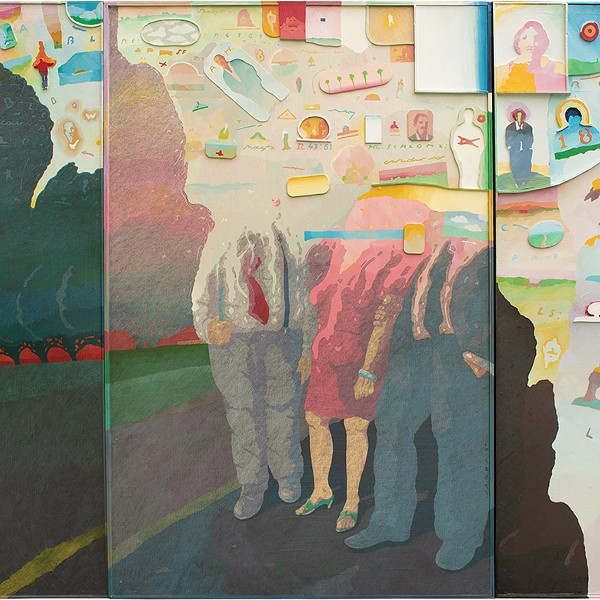He anticipates a calmer reception for How Beautiful It Is And How Easily It Can Be Broken, which takes its title from a stage direction in Tennessee Williams’s “The Glass Menagerie.” The book includes 30 critical essays culled from a vast body of work. As he reviewed his reviews, Mendelsohn noticed recurring themes: masculinity and femininity, images of women, sexuality—and, of course, classics. (A graduate student once challenged him to write a review of anything without referring to Greek tragedy—‘‘a bet I lost,” he says ruefully.) In the book’s introduction, he defends this propensity. “If I mention Aristotle’s or Horace’s theories of poetry in my review of Troy, it’s not out of some kind of loyalty for my subject—product placement for the Classics—but because no one has ever stated as crisply and usefully just what it is that epic is supposed to do for its audience.” His reviews of wannabe epics Troy and 300 are a hoot, including such zingers as “Some of the dialogue is in a mode perhaps best described as faux-legendary—the kind typically accompanied by much clasping of forearms.”
How Beautiful opens boldly, with a sock in the jaw to The Lovely Bones. Analyzing why Sebold’s cliché-ridden novel became a breakout phenomenon, Mendelsohn concludes that its “feel-good redemption” and “infantine vision of Heaven as a cross between a rehab program (Susie gets an ‘intake counselor’ when she arrives) and an all-you-can-eat restaurant” was ideal comfort food for post—9/11 America. The book’s final entry, “9/11 at the Movies,” on Oliver Stone’s World Trade Center and Paul Greenglass’s United 93, also includes the author’s own wrenching account. Driving downtown to pick up a friend, Mendelsohn looked up as a plane streaked into the North Tower. “A gigantic ball of bright orange fire ballooned out of the tower, followed by vast plumes of dense, black smoke,” he reports. “The first, irrational thought that came into my staggered mind was that someone was making a blockbuster disaster movie.” This tension between what is real and what is created to simulate reality informs the whole essay.
Mendelsohn observes that “however random the assignments you accept, you always wind up writing your own intellectual autobiography,” and his essay on Brokeback Mountain is a case in point. When his editor assigned a review, he demurred. “It’s a wonderful movie, yet there’s no traction. But something was working my nerve.” After seeing it for the third time with his friend Michael Chabon, Mendelsohn saw a newspaper ad trumpeting “the movie everyone in America is in love with.” Lightning struck. “It’s not something in the movie that’s bothering me, it’s how it’s been received, the spin on it as not a gay movie but a ‘universal love story.’” He went upstairs and pounded out the essay in one sitting, fueled by outrage. “Both narratively and visually, Brokeback Mountain is a tragedy about the specifically gay phenomenon of the closet,” he wrote, underlining a crucial distinction from social tragedies of the Montague/Capulet model: “Those lovers, no matter how star-crossed, never despise themselves.” (From The Elusive Embrace: “There is no gay man of my generation whose first experience of desire was not a kind of affliction, that did not teach us to associate longing with shame.”)
“One of the things I like about writing for the New York Review of Books is that it’s like having a conversation,” says Mendelsohn, who exchanged pointed letters with the film’s producer, James Schamus. But the critical scene is changing fast. “Books coverage is shrinking everywhere: newspapers, magazines. There’s more competition for less coverage nationwide,” he observes. “What interests me right now is the culture of criticism being transformed by the Internet and blogs, the blogosphere. Criticism used to be self-evidently a function of people having a certain training and background, which gave them a platform for opining. Now, everybody’s a critic, to quote my grandmother.”
Though Mendelsohn blames bloggers for a “glut of mean and snarky—it’s the snarky moment,” he also offers a corrective to the myth of the power-mad critic, sharpening his axe for the kill. “Critics go into everything hoping to be delighted,” he asserts. The negative “comes out of disappointment that something you wanted to love has not met its potential.”
















